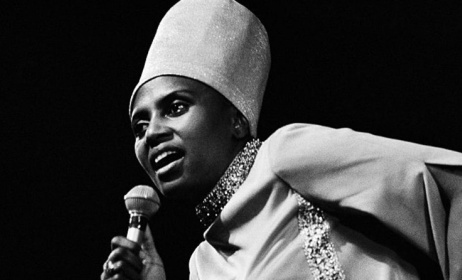Scrap Uganda social media tax, musicians tell govt
Ugandan Musicians have joined a public outcry rejecting a recent law imposed on social media users.
 A Pass says the government should respect the public’s right to freedom of expression.
A Pass says the government should respect the public’s right to freedom of expression.
The law, which took effect on 1 July, requires all social media users to pay a daily fee of about 200 Ugandan shillings ($5 cents). The tax is equivalent to about 20% of what typical Ugandan users pay for their mobile phone data plans, according to Reuters.
Speaking during a musicians' press conference on Tuesday, dancehall artist A Pass asked the Ugandan government to respect the public’s right to privacy and freedom of expression.
“These apps are not for the Ugandan government so the tax is illegal,” he said. “Daylight robbery, you guys should be ashamed of yourselves. What percentage are you going to give the developers of these apps? The hardest thing to understand in Uganda is how the government system works because it’s like they operate on impulse and not intelligence.”
The singer said the public was already paying enough in cellphone taxes. “We are taxed when we buy airtime and when we call airtime is taxed. Paying for the 200 tax is also taxed and transactions via mobile money are similarly taxed. This is unacceptable."
Musician-turned-politician Robert Kyagulanyi, popularly known as Bobi Wine, said: “We must stop being spectators and become actors. When the debate on these obnoxious taxes came to Parliament, some of us raised our voices. I personally tried to persuade fellow members of Parliament on the floor of the House that taxing social media would amount to double taxation. But would they listen? Sadly, the majority of them do not take orders from the people who elected them but from State House and that's how we end up here.”
On Monday, a group of five Ugandan citizens filed a lawsuit challenging the implementation of the tax. The petitioners argue that the new tax limits access to social media and in turn violates the right to freedom of expression, public participation, political mobilisation, peaceful assembly and unarmed demonstration.
“This tax is not meant to generate revenue but to clamp down on free expression," one of the petitioners said. "Similar taxes are being enforced in European Union countries but they are paid by the companies running the social media platforms and not the individual users."
The government through the Minister of Information and Communications Technology, Frank Tumwebaze, announced yesterday that it would review sections of the new law but maintained that the Uganda Communication Commission and the Uganda Revenue Authority (URA) would not scrap the tax.
It also seems that the review of the law would only concern the source of where the tax is collected.
“They are right. Why do I have to be bothered to pay the tax when you could deduct it from my airtime or bundles? That point is noted and we have communicated to the Ministry of Finance and URA,” Tumwebaze said.
Tumwebaze's announcement comes a day after a representative for Ugandan civil society, Penelope Sanyu, gave the government until Friday to retract the new law or risk nationwide demonstrations.
"If our concerns are not addressed by Friday 12pm, we shall mobilise the country to exercise their constitutional right and actively protest and reject the tax, which depicts a continued exclusion of young people from national processes,” she said.
Bobi Wine told Music In Africa that the new law should not be revised but scrapped. He said the tax had hindered expression, interaction, access to information and job opportunities for young people.
“The unemployment rate among the youth in Uganda is over 65%. The social media tax will worsen the situation because our businesses are struggling even harder. With rising poverty levels in this country, we reject the idea that a Ugandan who uses and can only afford daily data of say 500 shillings should be charged 200 shillings. This tax renders access to social media a preserve of the economically empowered,” Bobi Wine said.


































Comments
Log in or register to post comments